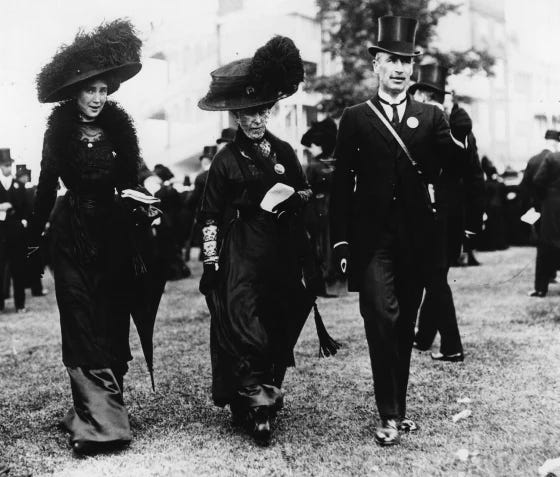As a child, Summer Time switched on about 4:30 pm in mid June, after the last bell sounded. With the school year gone, so was much of the parental rule and I found myself with blank canvases of hours. Ambiguity, a plane of openness that connotes more than one possibility, began to theme the days. The extent of planning was imagining how to wrangle the morning's library haul into my bike basket. Nothing was held tight except the deep cushion of endless days.
Summer time isn't anymore. Year round, I wrangle people, schedules, emotions and commitments, not books. Instead of meandering hours in air cooled stacks, there are quick trips to pick up books on hold encased in sweaty masks. I think in checklists, my unit of productivity, no matter what time of year. Ambiguity feels like a trick, a hellish limbo which paralyzes. With more than one option, certainty is impossible. And certainty is needed before I can do anything.
Eyes closed, I silently chant my gratitude prayer. A tossed charm against the throbbing in my temple. My left wrist is cocked awkwardly in a dish of tepid water as Eric held my right. A flutter, felt rather than seen, made me open my eyes and look at the door. An old woman was already walking past, toward the back of the shop. "Ma'am?" Eric called out. Nothing. He and I looked at each other.
She was in her early seventies with large wire framed glasses. Her jeans were long and rolled up a few times. Not cuffed boyfriend style, but rolled as if the denim were donuts. I saw Eric's sister, Jenny, speak with her. Clouds of confusion passed over Jenny's face as the old woman spoke. Jenny tried again. The old woman replied but even as she spoke, she walked away from Jenny toward Eric and I. I glanced at her hands. Long, uneven yellowed nails with crisp cuticles. She was in the right place but also very much in the wrong place.
The recent years have sowed uncertainty and I, too, find myself in limbo. Forging ahead and producing are the coping skills I learned. But the bootstraps have long flecked into dust. How do I tug with nothing to hold? But also so much to hold. And maybe because I'm not only in flux but exhausted by effort, ambiguity comes to mind. Like a firefly on a dark lawn she glides in view. On, off. On, off. In that moment, her opaqueness with unclear edges seems inviting, not grifty. On, off. I want closer to what now feels like possibility and not at all like damnation. On, off. Seven hundred square feet of acetone, polish and foil where an old woman walks through a door with no thought of a manicure. On, off.
Eric moved onto filing and trimming but I stood up when he took a call. The old woman was close by. “Can I call someone for you?" I asked. She opened her mouth but the words she strung together were as mismatched as a dryer full of socks. Verbs and nouns tossed into the air but don’t land. It feels like a prank. “A language is a flash of the human spirit." anthropologist Wade Davis said. But is that light visible if we cannot discern the words behind it?
The old woman and I looked at each other. I tried again, "Do you have your wallet with you?" Armed with a cheap Dollar Store floatie in a new ocean, I was way out of my element. Certainty, my lifetime muse was gone. Me, flummoxed. Her, waiting. Nothing was clear.
"Would you like to sit down for a moment?" I asked.
"She could sit down." she said, looking at me.
Something! I paused, then repeated the idea back to her. "Could she sit down for a moment?"
"She could sit down," she replied and incredibly, she did. I returned to my own seat.
"Should we call the police?" Eric asked me.
"Yes, I think so," I replied. I fished the phone out of my red spring bag. I dialed the non-emergency line and watched the old woman as I spoke into the phone. She seemed settled as a lake, in her hard plastic chair. Present but also, not at all.
"I have to be leaving, but I won't let that come between us, OK?
Etymology: Ambiguity comes from the Latin ambiguus, which was formed by combining ambi- (meaning "both") and agere ("to drive"). Ambiguity is the quality or state of being ambiguous. Ambiguous: capable of being understood in two or more possible senses or ways.
If you want to see me squirm, tell me you want to go to an amusement park. If you want to see me panic, tell me we're going on a roller coaster.
Yet, these days, I don't need to board the ride to feel butterflies-in-stomach. A roller coaster is going all day, everyday these days. I’m upside down, flying at 80 mph in the dark, dropping 150 feet, accelerating quickly again, then unexpectedly soaked as we come roaring into a shower of cold water. To combat the feelings of overwhelm and helplessness this daily ride generates, I become obsessed with control. Uncertainty feels intolerably dangerous. So I claw at what I can control in an attempt to gain some sort of equilibrium. The problem is we're grasping at the wrong goals.
Hanging up, I heard, "There goes that car again," from one of the other customers. I looked but again I was too late. "Has it passed by before?" I asked her. She looked at me, then at another woman. They both nodded. "A few times," she said. "Probably someone looking for her," the other woman said. I went to the door. A silver car was pulling up alongside the Food Lion. "Was it a silver wagon-y type car," I called back to the women. "Like a PT Cruiser?" They said yes. Eric came outside. "Do you think Jenny could go over there?" I asked him. "I've got to leave in 20 minutes to pick up my daughter but I bet whoever owns that car is looking for her.” He nodded and called Jenny over.
If only we had a bit more time, things would be FINE, the gurus tell us. And we believe them. We'd get to inbox zero, master all our challenges and have the life we'd imagine. The problem, Oliver Burkeman tells us in his wonderful book, _Four Thousand Weeks: Time Management for Mortals_, is not time. It is our unwillingness to accept that we have limited control in our life. And if that's true then our fevered need to hack the hours we're given is pointless. Now is all we have. Certainty is not elusive; it's impossible.
A car screeched to a stop outside the salon door. A hefty man with face the color of spoiled milk barreled in. He saw the old woman immediately, “You’re in big trouble,” he said, looking out at us to confirm we got the joke. Obligatory chuckles from the Greek chorus behind me. I watched Milk Face as he attempted to cajole the old woman to her feet. If she recognized him, she didn’t show it.
“Is okay, you think?” Eric asked quietly.
I get up and walk outside as Milk Face slams the passenger side door. Feigning a waving wet nails gesture, I study the license plate as they drove away. I was scribbling it down in my notebook when the cop pulled up. Early thirties, blond good looks, the kind of guy I’d have gone for in my early years out of college not knowing any better. The cop glanced at the front door, then at us inside. He reached for a pocket. Pulling out a mask, he slipped it on and walked in. “I was the one who called, officer.” I said. I ran down what happened. He took notes, asked a few questions, then left.
When my paternal grandfather, David, died in the mid 1980s, my grandmother Mary, his wife, was in her early sixties. By this time, however, wearing black past the funeral was well out of fashion. Unless you knew my grandfather then, you wouldn't have known Mary Johnson was mourning her husband.
I sometimes wonder if the absence of mourning clothes led to the slow evolution of closure as an en vogue concept. Closure, like time though, is an invented concept. To get through something hard, therapist Pauline Boss tells us, we must work towards resilience, not closure. One way to do this is to normalize ambiguity. To accept the both/and, the presence of absence.
Scooping up my bag and sweater, I made a decision. I walked out and headed over to the cop's car. I stood next to the closed door and waited. The officer looked out and put down his window. "I didn't like how he was with her. He didn't seem like a good caregiver." I said.
"Do you think he was her son?" the cop asked, blue eyes watching.
"I don't think so," I replied but the truth was that relationship hadn't occurred to me. Milk Face was a big man. His size and the greyness of his own hair had me assume he was her husband.
"I found the car," he said. "it's registered to her. Not far away, I'll go check it out."
"Thanks," I said.
"Sure," he replied.
There are certain things we need to know. That our bills are covered, that we have a safe place to live, that we can buy food. We need knowledge for work so we can do that job so that we can cover those basic needs. We need to know allergies, medications, health conditions. We don't need to know much else.
And the man who merely
washed Michelangelo’s brushes, kneeling
on the damp bricks, staring
every day at the colors pouring out of them
lived to be a hundred years old. (1)
I have always imagined myself a good student. Sitting in the front row, confident as an arrow, I paid attention. I answered the prompted questions, I did the work. But what I'm slow to realize is what's needed in life is to be a good learner. While a student prizes certainty, a learner accepts that there are no sure things. No matter how things seem or what we're told.
Something else I keep getting wrong: not everything is about me. I feel your scoff as I write this because... "of course it's not!". But like many white people, savior mode comes easily thanks to the poison of supremacy thinking. Caped up and amped up, I lose sight of the fact that while "good intentions" give me excuse to help, I should remember that not every situation merits my intervention. And so in the absence of closure from the cop, I took something else: the opportunity to let go.
I'd prized certainty not only because it feels like the straightest path to productivity but living otherwise is to admit how arbitrary life really is. If I accept that, then I must also acknowledge the absolutes that I crave are false benchmarks. That's a hard truth. But, I'm learning there is value in the softness of not staking a claim, ease in letting things unfold without meddling. Or at least...not meddling any further that I can help it. Ambiguity is a way to live in that nuance. Resilience, after all, is being able to manage hard things but also accept the unknown.
If we let it, ambiguity can be a guide for heavy hearts and discontent. Because while we cannot allow ourselves to be battered by conditions - isolation, comparison, pain, hatred, fear - that cause us to feel uncertain, scrambling for boots that have long lost their straps -- or were absent to begin with -- isn't sustainable or productive. Instead of forcing action or avoiding what's painful, we can allow ourselves to feel the discomfort, acknowledge its presence and not have to resolve any of it. If I can try this on, then ambiguity ceases to be something to avoid. It becomes, instead, a path toward liberation.
(1) Mary Oliver, Dream Work.
(Michelangelo’s Delphic Sybl from the Sistine Chapel ceiling, Rome.)
What’s On My Mind:
Four Thousand Weeks: Time Management for Mortals by Oliver Burkeman. I can’t stop thinking about this book which I finished last weekend. It’s one of those rare reads that has the potential to transform your life. Stay tuned for more. Can’t wait? Go get it!
The fault is not ours but…how we can move forward now via Lyz Lenz here.
Author, designer and podcast trailblazer Debbie Millman wrote a sorrowful, moving piece about why abortion is essential. Another reminder that you always know someone who is a sexual abuse survivor.
The very positive feedback that Larissa Parson and I have received on one of our recent Wondermine episodes, “Female Troubles”. It’s one of my faves. Take a listen here, if you haven’t.
What I’m Reading & Loving:
Besides Burkeman above:
The Myth of Closure by Pauline Boss. For anyone who has ever been pushed into “closure” or has struggled with grief, even the ambiguous loss sort. Excellent, accessible and SHORT!
The Miss Peregrine Home for Peculiar Children books. I recently re-discovered the series after losing track of it during Covid. Just finished book 5 and am headed to the finale of the series next.
“I wanted to get at the unholy alliance of what we love even as it makes us squeamish,” says cultural critic Margo Jefferson here. Oooh, yes! How fascinating. Jefferson is talking about her new (EXCELLENT!) book, a memoir, called Deconstructing a Nervous System. But her words remind me of one of her earlier books that I mentioned here, on Michael Jackson.






